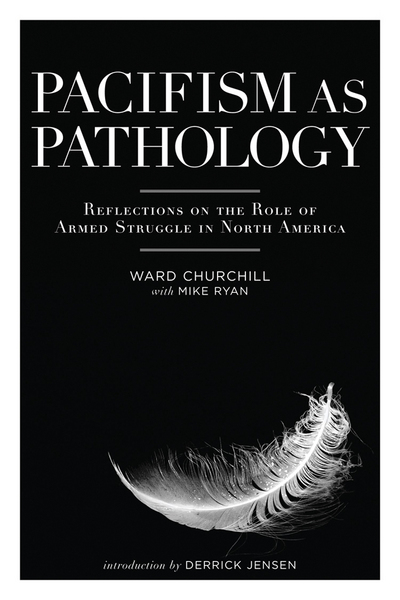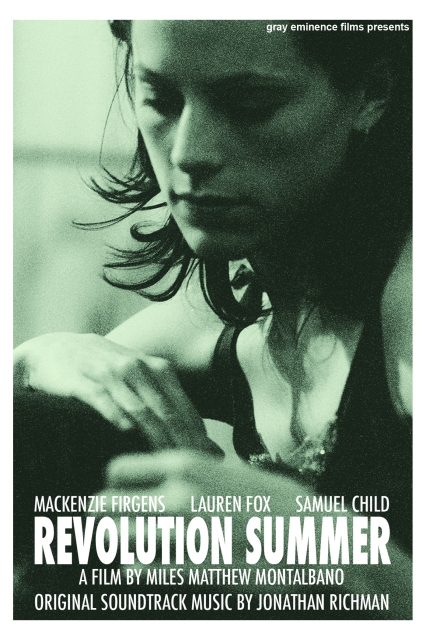From the Open-Publishing Calendar
From the Open-Publishing Newswire
Indybay Feature
Pacifism Summer: Revolution Summer Through the Lens of Churchill's Pacifism as Pathology
State police, often serving as the order-preserving arms of global capitalism, have a simple formula for dissolving
groups that pose a threat to that order.
This formula has been documented for
decades in the US and has even been
applied against completely nonviolent
groups. According to Ward Churchill
in Pacifism as Pathology, reissued this
year by AK press, the existence of such
a formula brings up an inherent flaw in
the logic of American Liberals and other totally ineffectual leftist groups that
remain stridently critical of the use of
violence in resisting the state. Churchill
makes light of the absurdity of assuming that as long as dissent remains nonviolent, the state will be forced to follow
suit. He then unveils the harsh truth
that within nation-states that can mobilize violent use of force to protect ruling-class interests, the stance of absolute nonviolence has become a placebo
for the progressive class, quelling their
woes but changing nothing.
In the police state we live in, understanding this reality does not lead to any
particular solution. Pinned between a
rock and a hard blow to the head for
even nonviolent assembly, we continue
to choose from the ever-increasing list
of state-sanctioned ways to rebel against
the system—marching in permitted
protests, signing petitions, calling your
local legislator, wearing buttons espousing your political views, and making an
annual trip to Burning Man. Sometimes we’ll even end up in jail for some
symbolic action that hopefully gets decent press and allows us to cope with
our relative helplessness. But the fact
remains that our tax dollars pay for the
very batons that come cracking down
when we stick our necks out to ask if
this is really necessary.
Concerned citizens, and even a Fox
News reporter, were asking this question at MacArthur Park on Mayday in
LA after what seemed to be a real-life
episode of Cops Gone Wild (Youtube
it if you haven’t seen it yet). That day,
police were apparently given orders to
do their stomp and smash robot march
during a peaceful immigrant rights rally,
clearing the park, battering kids, taunting old ladies, and trampling news media. Yes, they are trained to do that. Yes,
they would do it to you.
That same week at this year’s San
Francisco International Film Festival,
a packed Kabuki Theater watched the
premier of Revolution Summer, a dark
indie feature examining the lives of
young hipsters coping with life in a dismally repressive world. The film, produced and shot here in SF and Oakland,
portrays a couple impassioned morons
fetishizing vague revolution in a vague
plot to use armed violence against the
vague state. Through the lens of Pacifism, the film is thematically germane,
glorifying an earnest desire to react, and
considering armed plots as a means to
do so. However, a slow drawn out plot
in which a couple of angry kids plan
some kind of haphazard offensive and
have to face grave consequences—getting beaten and interrogated before they
even carry out the action—seems like a
pretty incoherent assessment of the dilemma of repression for the privileged
dissident.
An essay by Mike Ryan in the new
edition of Pacifism points out that
in “colonized/neo-colonized” Third
World countries, there has never been
a successful campaign against the oppressive state without resorting to violence, which often begins for defensive
purposes. The use of violence is empirically indispensable when dealing
directly with state oppression. But here
in the First World we are dealing less
with direct oppression and more with
forces of alienation and the remorse of
ineffectuality. Pacifism makes the case
that no matter what logic you use to
condemn it, violent resistance has historically been the threat that forces First
and Third World states alike to cave to
the demands of nonviolent resistors.
In this way, both groups are necessary
for change to occur. Churchill cites the
case of the Black Panthers, who polarized the left and allowed those in the
nonviolent movement to feel like they
had made a bigger difference than they
could have alone. In the process, Panther members faced heavy and in some
cases fatal persecution.
In a post-Seattle, globalized atmosphere of resistance, the nonviolent
tactics of decentralized mass mobilizations have had some success where
they’ve been able to catch police off
guard. However, ample funding and
the sophisticated militarization of municipal police have picked up the slack
against the current movements, and we
have seen that when successful, even the
tactics of relative nonviolent resistance
are not tolerated. Throwing rocks at
multi-million dollar armies or symbolic
destruction of property is branded as inexcusable violence and “justified” persecution ensues. This persecution tells us
that tactically, someone is doing something right. But historically we know
that successful resistance can bear grave
consequences. Revolution Summer, if
anything, reinforces the need posed by
Churchill to consider creative violent
resistance to achieve social change. It’s
just too bad that the hopeless shallow
dimwits considering it never make light
of the scope or history of such resistance.
For more information:
http://indybay.org/faultlines

Add Your Comments
We are 100% volunteer and depend on your participation to sustain our efforts!
Get Involved
If you'd like to help with maintaining or developing the website, contact us.
Publish
Publish your stories and upcoming events on Indybay.
Topics
More
Search Indybay's Archives
Advanced Search
►
▼
IMC Network



